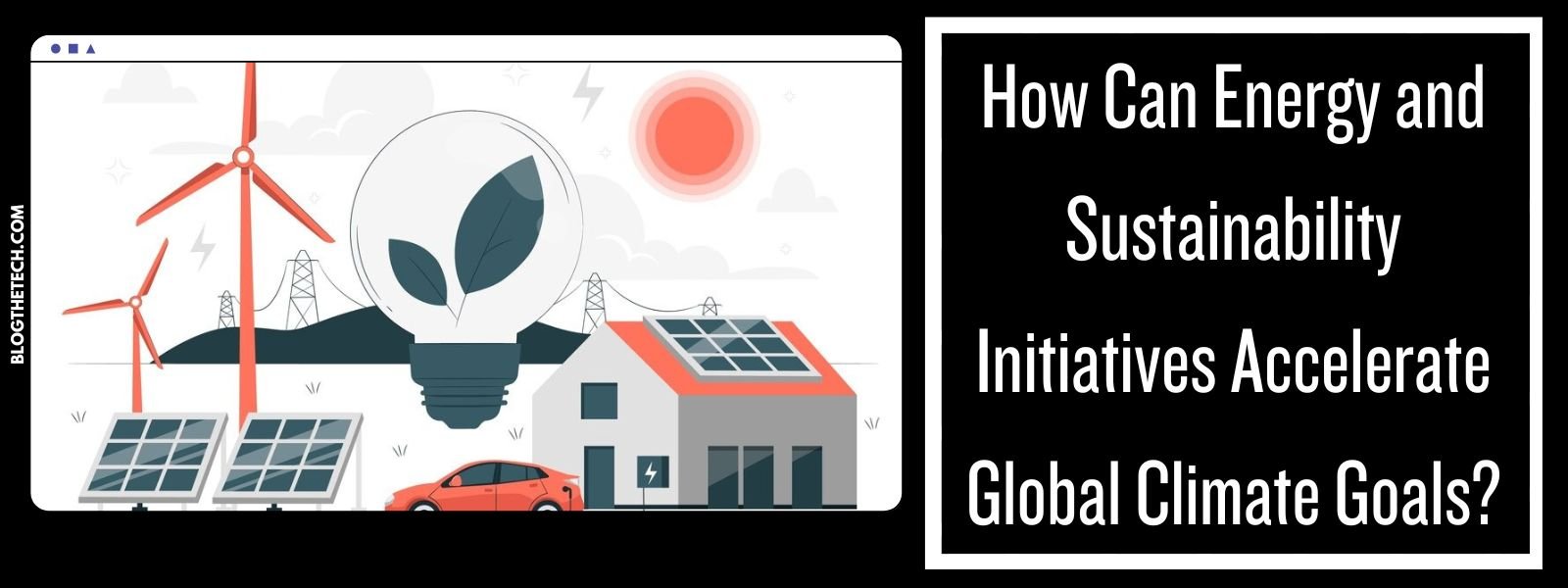The urgency to address climate change has reached unprecedented levels. Governments, companies and individuals around the world reduce the harmful effects of global warming. Among many methods, energy and sustainability initiatives are highlighted as basic tools in combating climate change. These initiatives not only address environmental challenges, but also enhance economic growth and social welfare.
This blog explores The pivotal role of energy and sustainability And how it contributes to a more healthy and more green planet.
The role of renewable energy in achieving climate goals
Renewable energy sources, such as solar energy, wind and hydroelectric energy, are necessary to reduce greenhouse gas emissions. These clean energy options provide an environmentally friendly alternative to fossil fuel, which are major contributors to global warming.
The transition to renewable energy reduces dependence on non -renewable resources, which reduces Carbon fingerprint Energy generation. For example, solar and wind energy projects have seen tremendous growth in recent years, indicating its viability and expansion. In addition, renewable energy provides sustainable energy supplies, ensuring energy security while contributing to the long -term climate targets.
Promote energy efficiency for a sustainable future
Improving energy efficiency is another decisive pillar of energy Sustainability Initiatives. By improving how to use energy, companies and families can reduce consumption without compromising performance.
From upgrade to energy -saving devices to building buildings with better insulation, there are many ways to enhance energy efficiency. Industries are increasingly adopting innovative technologies, such as smart systems and automation, to monitor and improve energy use. These measures not only reduce costs but also noticeably greenhouse gas emissions, making them a victory for both the economy and the environment.
Sustainable practices in industries and companies
Industries and companies have an important role in leading sustainability. By integrating sustainable practices in their operations, they can contribute to global climate goals while enhancing economic growth.
For example, the adoption of the principles of the circular economy – where resources are re -recycled – are recycled – waste and energy conservation. Likewise, the transition to low -carbon supply chains ensures that every step in production reduces its environmental impact. Companies are also setting on science to align their operations with international climate agreements, which enhances their commitment to sustainability.
Society’s participation in sustainability efforts
Societies play a vital role in energy and sustainability initiatives. Popular movements and local programs encourage individuals to adopt sustainable habits and enhance awareness of climate issues.
Educational campaigns on energy conservation, recycling and renewal of renewable energy enable societies to take implemented steps towards a more green future. Moreover, the community -based renewable energy projects, such as solar cooperatives, allow those participating in clean energy transfers directly. This massive collective effort accelerates the adoption of sustainable practices and enhances the fight against climate change.
The global impact of energy and sustainability initiatives
Energy and sustainability efforts on its influence extend beyond the local and national levels. By enhancing international cooperation, these initiatives help in harmony with global climate change strategies.
For example, renewable energy investments and technology transfer between countries developing developing countries have access to clean energy solutions. This global cooperation guarantees that all countries, regardless of the economic situation, can contribute to climate goals. Moreover, these initiatives enhance green functions and innovation, creating economic opportunities while facing environmental challenges.
Partnership on a sustainable tomorrow
The transition to a sustainable future requires a collective action of governments, industries and individuals. Energy and sustainability initiatives provide a clear path towards achieving global climate goals by enhancing renewable energy, improving efficiency, and promoting community participation.
Partnership with good reputable energy brands can amplify these efforts. Energy companies often have advanced technologies and experiences that can improve sustainability strategies. They can help companies and communities to implement the solutions designed to meet their unique needs, ensuring the maximum impact. By compatible with reliable partners, stakeholders can accelerate progress towards a more green and more flexible world.


